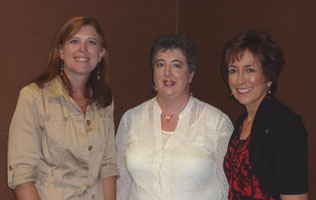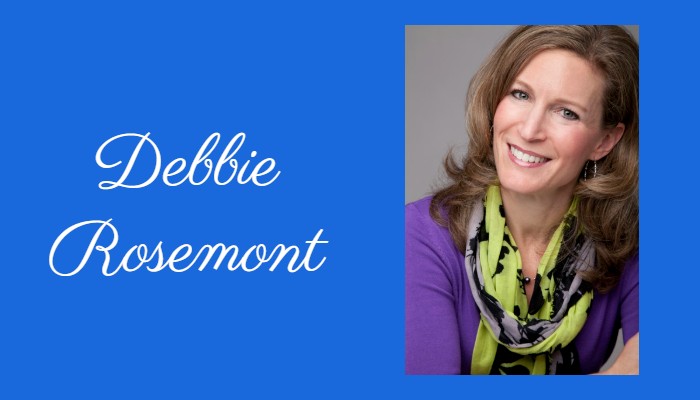Secrets to Growing Your Organizing Team
This page may contain links to Amazon.com or other sites from which I may receive commission on purchases you make after clicking on such links. Read my full Disclosure Policy

When you started your business, you probably had no trouble fitting both your paperwork and your clients into your schedule, but now that things have taken off, you may be thinking about bringing other people on board. Before you take this step, find out what’s involved by reading my interview with Janice Russell, CPO-CD, COC of Minding Your Matters® Organizing.
Janice, how long have you been a professional organizer, and at what point did you decide to bring in team members?
I opened Minding Your Matters® Organizing in 2002, and began to build my team in 2005.
How did you know it was time?
By the time many people call us, they are ready to get started. While they have had clutter for years, at the point of the phone call, they’re ready to start the next day. I was having to book people more than a month out, and I could hear disappointment and some frustration in their voices.
Being able to respond quickly to client needs is clearly a good thing, but how has it benefited you and your business?
The biggest advantage to having a team is the ability to earn more money. There are only so many hours in a week which means that as service providers, we can only earn money for billable hours, with two notable exceptions: if you have passive income or if you have a team.
The team is advantageous in two ways: organizers can work billable hours, and support staff can complete tasks to free you up to take care of other business activities.
How many people are on your team right now? Are they employees or independent contractors?
I have two organizers who are employees, and a bookkeeper and administrative assistant who are independent contractors.
How did you go about finding and selecting your team members?
For organizers, I put out the word through my local network connections and my NAPO-NC Chapter, but I have had potential organizers contact me for years, so I always tell them that if they send me a copy of their resume, I will contact them when I’m hiring.
I’ve always had a list of questions that I used with each candidate during an interview, and my selection process has been refined through the years. Now I also have a list of questions for the phone interview prior to the in-person interview.
I found each of my independent contractors a different way.
I found my bookkeeper through a local company that matched moms who had previously been in the workforce and then had taken off time to stay at home with children but were now looking for opportunities to work part-time with flexible hours.
I found my administrative assistant through another organizer. My admin is a virtual admin who lives in a different state. Because the recommending organizer lived in a third state and had a different type of practice from mine, I didn’t feel there was any conflict of interest. I figured it was prudent to work with her for a while and then, if it didn’t work out, to use the industry association for virtual assistants to find someone else. In this case, I had very specific needs and none of the VAs in my area provided one of the main services I wanted.
What are the advantages and disadvantages of hiring your own employees versus hiring independent contractors?
You can train employees in your methodology, so you have more control than you do with independent contractors, where there are strict parameters over how you can and can’t supervise or guide their work. For the most part, it is hands-off. If you want people to do a task according to a specific methodology or using specific tools, using independent contractors isn’t advisable.
On the other hand, with independent contractors, there’s much less paperwork; you don’t have to deal with the administrative piece around pay and taxes like you do with your own staff. But that is one reason why I have a bookkeeper! 🙂
What are the biggest challenges you face managing your team?
My biggest challenge is one that’s faced by all managers: communicating with each team member in a way that works for them. It’s easy to make assumptions that I’ve communicated clearly, and then I find out that it wasn’t so clear on the receiving end.
A second one is delegating. Since I tend to like things “a certain way,” I’ve had to really learn the skill of delegating in addition to the concept that often “done is better than perfect.”
One challenge that might be unique to organizers is the amount of time in the field. From the very beginning I set the expectation that I can’t predict how many organizing hours staff might have during a week or month. The team has done a great job of understanding this, but it doesn’t mean that I don’t feel bad if I’m not providing them with as many hours as I know they would like.
Looking back, is there anything you would do differently?
That’s a great question! I don’t think so, only because time and going through the process of hiring and letting go have brought me to the place where I feel comfortable making staffing decisions. Experience is a great teacher and even if someone had “told me” the lessons that I’ve learned, I don’t think I would have followed their advice. Sometimes the only way to learn is to try and see what happens.
What is the #1 piece of advice you would give to an organizer who wanted to build a team?
Make sure you are following the law when it comes to deciding whether to hire employees or to use independent contractors. I have heard stories of organizers who had to pay big fines because the IRS disputed how team members were classified.
Any other tips?
NAPO has a Multi-Person Special Interest Group. People who are NAPO members with teams who want to discuss issues, challenges and successes related to teams can see if they meet the qualifications to be part of this SIG. I’ve found it very beneficial.
A leader in the organizing field, Janice is a founding member and past president of the North Carolina chapter of the National Association of Professional Organizers (NAPO) in addition to being a Golden Circle Member and past education chair for NAPO. In 2009, she was nominated for the prestigious NAPO Founder’s Award.
Janice is the Past Certification Program Director of the Institute for Challenging Disorganization (ICD) and holds the distinction of being the first professional organizer in North Carolina to become a Certified Professional Organizer in Chronic Disorganization, a certification she has held since 2005. In 2007, she received her credential as a Master Trainer in Chronic Disorganization and Organization. Janice also holds the Chronic Disorganization Specialist Certificate and the Attention Deficit Disorder Specialist Certificate and has obtained all ten of the Certificates of Study offered by ICD.
She is a graduate of the Organizer Coach Foundation Training provided by the Coach Approach for Organizers. She also holds a Masters in Education from Vanderbilt University.
In addition to organizing services to the public, she provides consulting for professional organizers to help them start or grow their business.
Do you have a question for Janice about starting or running a team? Please enter it in the comments and she’ll be happy to answer.



